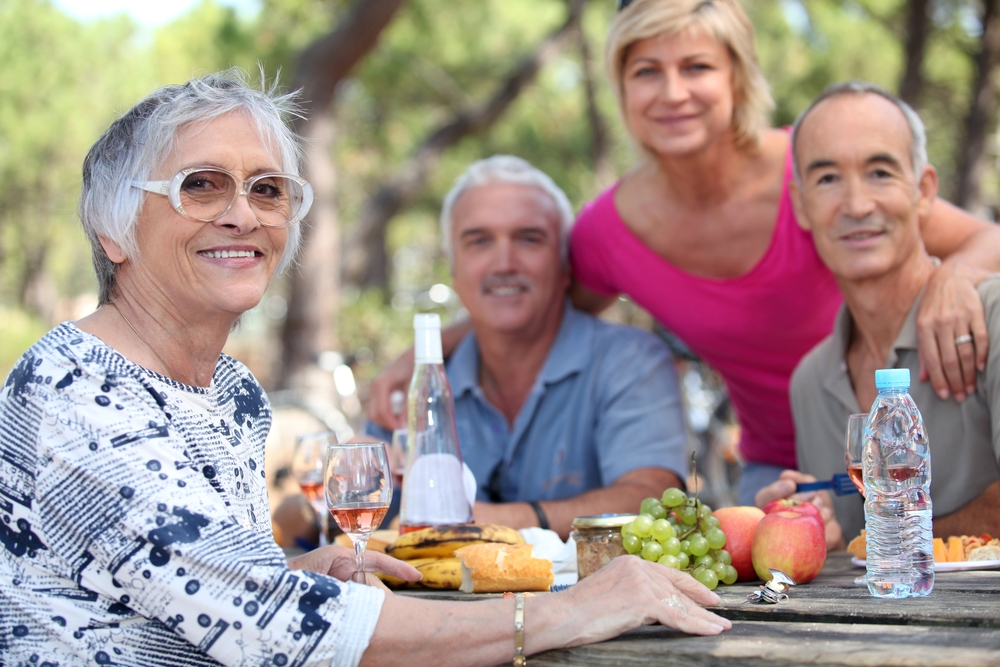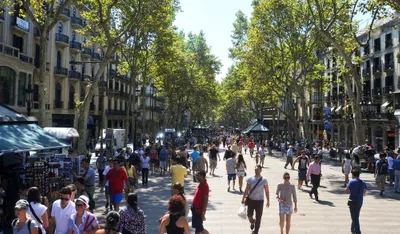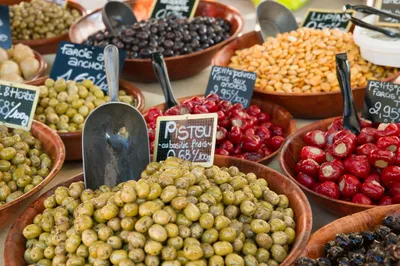Have you ever visited a European city and felt overwhelmed by the amount of beautiful, trim people? They’re hard to miss–and they’re everywhere in Europe. Western tourists often stick out in a crowd of locals, and it’s not just the camera around their neck or the flag they wear proudly on their backpack, it’s their waistlines.
While we could claim all of Europe has good genes, it’s more likely that their lifestyle and healthy habits give them these enviously healthy figures. Here are 10 wellness secrets from svelte Europeans…
1. Walk As Much As You Can
When visiting a European country, you would be hard pressed not to notice how everyone gets around: with their own two feet. European cities are better laid out for walking and taking public transit than a lot of North American cities are, but you can still get walking if you make it a priority. Taking the stairs, parking far from the entrance of a store, and walking to the corner store when you only need a few items will help increase your daily steps. Also consider taking a brisk walk a couple times a week to increase your cardio exercise–and to relax and enjoy the beauty of your surroundings.
2. Cut Out the Snacks
Europeans love their food and spend hours making meals a social experience that is truly enjoyed. It’s uncommon to see snack-type foods in grocery stores. In fact, most European grocery stores are a fraction of the size of American ones–they’re more like convenience stores, and carry very little snack foods and a lot of fresh produce. It’s not that you need to cut out snacks completely as snacking can be very healthy. If you’re hungry, you’re hungry, but make sure that you’re actually hungry (not thirsty) and if you want to snack, eat fruits, vegetables, lean proteins, and complex carbs instead of processed snack foods that are high in trans fats, sodium, and refined sugars and starches.
3. Take Time to Enjoy Your Meal and Company
Does it ever feel like your mealtime is a challenge in the Amazing Race? It sure seems that way sometimes. There are so many fast-food options available and busy schedules can make you rush through your meals. But doing so often leads to over-eating as your body can’t catch up in time to tell your brain that you’re full. Eating slowly also helps your body properly digest food. Europeans stay thin not only by what eating more whole, fresh foods, but also in how they eat food. Meals are an integral part of the European social experience, often taking hours to finish. Food is consumed and enjoyed slowly, while company is enjoyed even more.
4. Get Rid of the Stress
Many European countries are known for having less stress compared to other countries. Not only is that good for your mental health, there are tons of physical health benefits to having low stress. According to the Mayo Clinic, your emotions can lead you to binge eat, never even enjoying what you’re consuming. Emotional eating can also cause you to opt for high-calorie, sweet foods. So the next time work or family life is pushing you to eat everything in sight, do something else to burn away the stress. Exercise is a great way to clear your head (even if you only have 15 minutes) and the endorphins will help you feel more positive.
5. Focus on Quality, Not Quantity
One of the biggest differences you’ll notice when in Europe is portion size. When you order a meal at your standard American restaurant, you get 2 to 3 times as much food as you would at a restaurant in Europe. And more often than not, what you order here is full of processed ingredients, the opposite of the fresh foods and ingredients you find in Europe. While pre-packaged and processed foods are quick and cheap, they contain a lot of chemicals and additives that aren’t necessarily good for your body. Focusing on food quality will make you enjoy what you eat more—while reaping the benefits of fresh, wholesome foods.
6. Eat High Fiber Foods
High fiber fruits, vegetables, and breads are a staple of the European diet. The Mayo Clinic explains that fiber intake can help maintain a healthy weight, lower the risk of diabetes and heart disease, and normalize bowel movements. Refined and processed foods are notorious for having very little fiber, so get your fiber intake from fresh fruits, vegetables, whole grain bread, and nuts. Leave the skin on fruits and vegetables if you can–that’s where the all the good stuff is.
7. Slow Down and Enjoy Life
There are a lot of diets out there that offer big results within 5 to 30 day periods. It seems that we diet just as fast as we eat. But the most effective way to lose weight and keep it off is to make it part of your routine. This means avoiding crash dieting or gruelling, 7 day exercise bursts a few times a year. Healthy living and healthy eating is a way of life. Don’t make it a chore; make it who you are. By slowing down and looking at what really matters to you, you’ll be able to add in healthy habits that don’t seem like changes, and enjoy what’s around you more.
8. Take Advantage of Markets
Markets with fresh, local food–everything from fruits and vegetables to baked bread and lean meats–are predominant in European cities. And the locals regularly take advantage of them. In fact, it’s easy to avoid buying anything packaged with all the markets and fresh food stands around. By forcing yourself to buy fresh foods, you’ll cut out a lot of extra sugar, chemicals, and bad fats that are common in popular North American processed foods. Eating fresh means a trip to your grocery store, food stand, local farm or market every few days, but the end result is worth it.
9. Cut Out the Soda and Bring On the Water
You’ll find that it’s often very expensive to order soda in restaurants in Europe and it’s rare to see locals drinking it. Instead, they order water with their meals. Even their soda can and bottle sizes are much smaller than what you find in North America. Drinking water instead of soda has many benefits besides reducing sugar (or aspartame) and calorie intake; water helps flush toxins from your body, which can aid weight loss, and keeps your body hydrated. Hydration is essential for your muscles and helps prevent fatigue. So opt for the clear, calorie-free option from now on instead of soda.
10. Eat a Hearty Breakfast
It’s been said over and over again–breakfast is the most important meal of the day. And for Europeans, while they have 3 hour dinners, getting in a good first meal at the start of the day in is just as important. Europeans often eat a combination of meats, cheeses, fruits, vegetables (yes, veggies for breakfast!), pastries and eggs for breakfast. A protein and nutrient-rich breakfast will give you the energy to start your day and help prevent unnecessary snacking.













